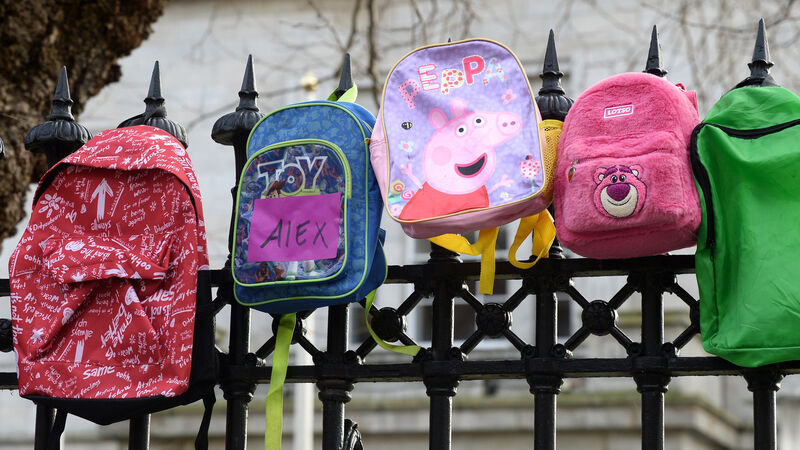Mick Clifford: Law demands equal treatment for all children. Results have been pretty poor

School bags hanging on a fence in Dublin as a protest over a lack of school places for autistic children at the Department of Education took place on Marlborough Street on Monday. in Dublin. Picture: Justin Farrelly/RollingNews.ie
Michael Moynihan is the new sheriff in town when it comes to ensuring that all children get the education they deserve. The junior minister with responsibility for special education told political editor Elaine Loughlin that schools may be compelled to open special classes.
“We need to make sure that there is no culture, or there’s no attitude, or there is no reluctance to embrace the opening of special classes,” he said in an interview. “And if there is, we need to break them down.”













